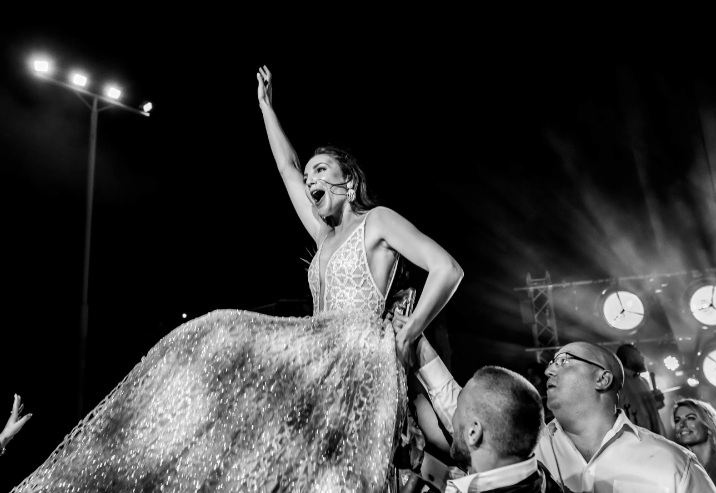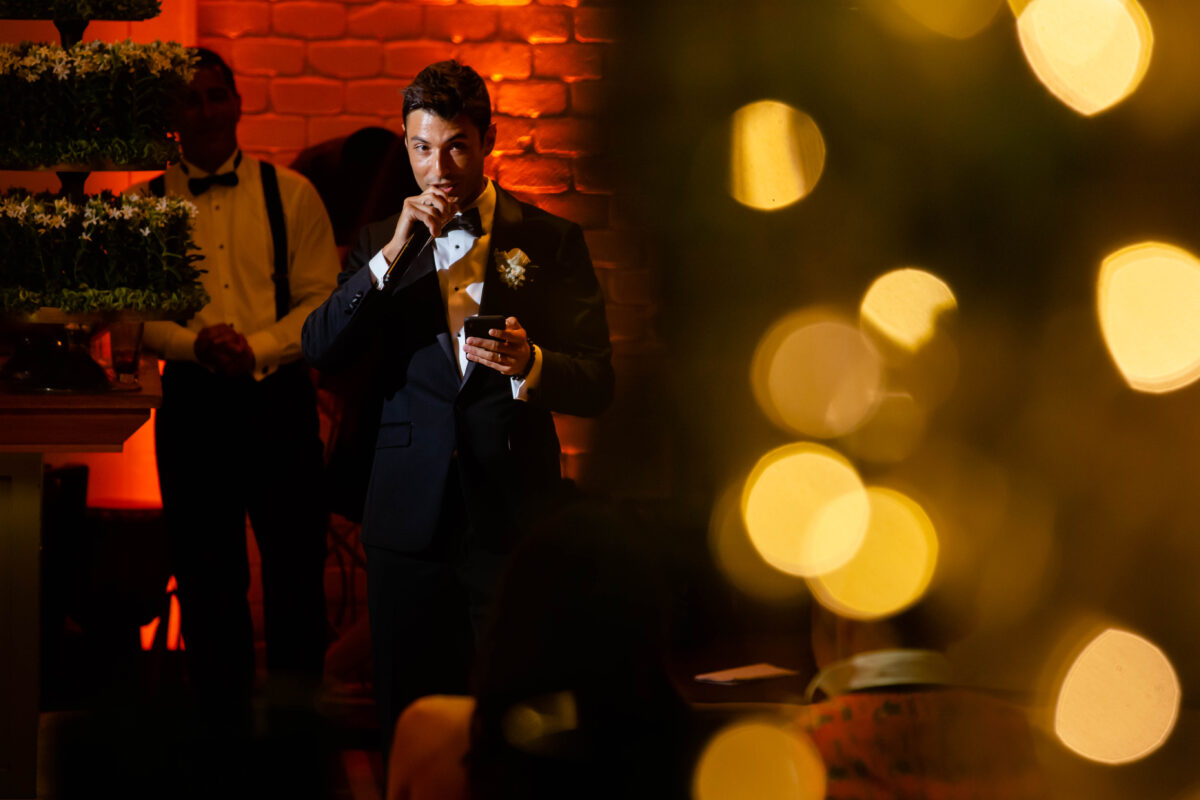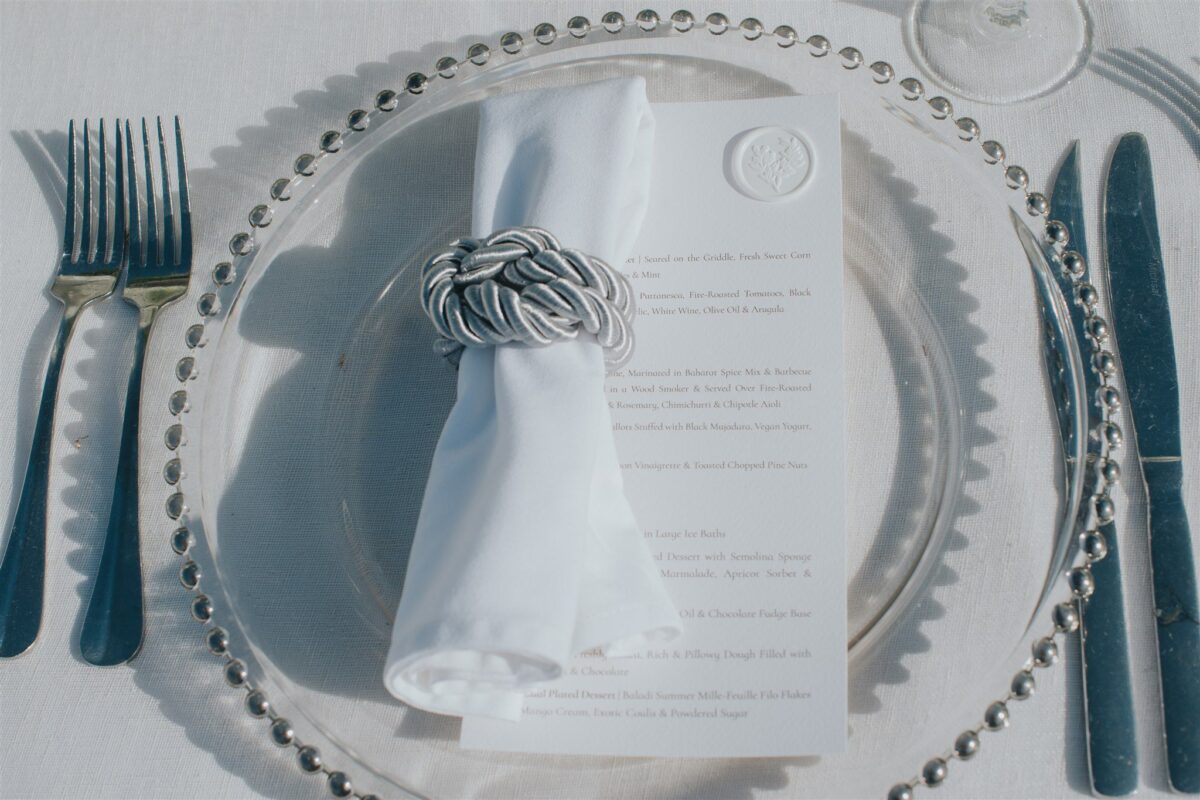Weddings are beautiful celebrations that bring together family and friends and while they are joyous occasions there are many differences depending on the culture and location of the Bride & Groom. Israeli weddings are unlike any other wedding especially in comparison to the standard wedding ceremony in North America and Europe.
Weddings in North America are typically very structured and run on a tight timeline which makes every wedding seem to be exactly the same. If you receive an invitation to an American wedding you know exactly what to expect. You will show up at the designated time for the ceremony, find a seat and wait for the ceremony to begin. Shortly after the Bride is ushered down the aisle to her Groom. The officiant will say a few words, the couple will exchange vows and then the magical KISS.
The Bride & Groom will then be whisked away for photos while the guests are ushered to a cocktail reception. This reception, while most guests enjoy sipping on a cocktail, always feels a little uncomfortable. Many times, the guests do not know each other so they feel a bit awkward standing around with strangers waiting on the couple.
Once the photos are done the guests are directed to the reception. There they are instructed to find their table & seat assignment and wait for the introduction of the Bride & Groom. Yes! The DJ will make a formal announcement introducing the couple as Mr. & Mrs. The couple will enter the reception and have their first dance together as husband and wife after which dinner is served.
At this point in the event the guests really have had no personal interaction with the couple. For a ceremony and event that is intended to bring family and friends together to “celebrate the couple” it seems as though time is not allocated to allow this to happen.
Israeli weddings on the other hand differ in many ways. There are many rituals and traditions incorporated into the wedding but things tend to be less scripted and formal. A Jewish wedding is a true celebration of two souls becoming one.
When you are invited to an Israeli wedding you are in for a treat! This is one culture that knows the true meaning of celebrating.
How Does An Israeli Wedding Differ From A Western Wedding?
In Israeli culture the “reception” takes place prior to the ceremony. During this time the guests will enjoy cocktails and food while mingling with the families of the bride & groom. In some cases, the bride & groom will also make an appearance at the reception. This is a great way for a celebration to start because it allows the guests to relax and meet others that they will spend hours with.
For a Western wedding to take place a marriage license is required. This is obtained by going to a government office which is very non-glamorous or ceremonial. In the Jewish culture there is a wedding contract that outlines the man’s financial and conjugal obligations (very different from the marriage license in North America).
After the bride and groom exchange vows and rings there is the breaking of the glass. Everyone knows this part! The groom will stomp the glass and everyone shouts “Mazel Tov” which means congratulations & good luck.
Now it is time to really celebrate! Different from the Western weddings in that the Bride & Groom will walk down the aisle together and be whisked away for photos, at an Israeli wedding once the glass is broken everyone rushes the bride and groom to kiss and congratulate the new husband and wife.
Dinner is informal as well as there are no seat assignments. Just good food and music.
The extreme partying starts after the meal and is not for the faint of heart. The music and dancing can last for hours, sometimes until 5:00 in the morning.
The approach that the Israeli culture has to celebrating marriage is free-spirited and high-energy. Their openness and passion for family, friends and the respect for marriage is evident throughout the event. The less formal feeling that this provides really makes you feel that everyone is really “part of” the event.
Guests are not spectators like in other cultures, they are truly part of the event.
You will enjoy every moment spent!







